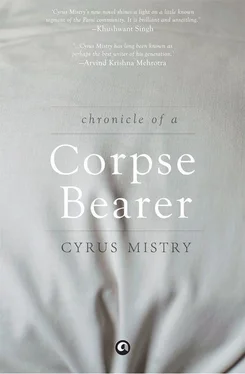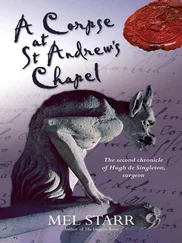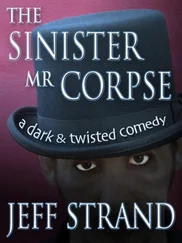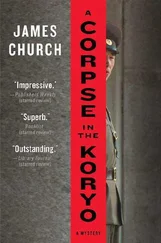‘God alone knows where he goes loitering every night. I thought he had forgotten to take his key again, and it was him knocking. . Can’t expect anything from that boy; never could expect anything from you either. If that’s the way it has to turn out, I’m content. .I’m content. .’
This last was practically an aside, muttered to himself. I felt sad to see him so lonely, yet too proud to admit it.
‘Well, tell me: what is it you want from me now?’
It was his way of inviting me to speak my mind, but considering I hardly ever met him, let alone craved favours of him, seemed a little unfair. But I felt it expeditious not to point that out.
‘You remember my friend from school, Rohinton Kanga?’
‘H’mm.’
‘This is about his half-brother, Joseph Maloney Kanga, who is dying. .’
‘Ah. I thought it would be some such murky business. .’
‘He believes. Joseph truly believes. .he wants to become a Zoroastrian before he dies. At least he wants to go out of the world like a Zoroastrian.’
‘Well he isn’t a Zoroastrian, can never be. . He should have thought of it earlier. If he wants the vultures to make a meal of him, he should request the vultures. Why ask me? Whether they’d be willing to consume the product of a mixed marriage? I’m sure they won’t be that finicky. .’
It was many years since my father last shared a joke with me. Many years, perhaps, since he had a shy at making any joke at all. As such this wasn’t such a bad attempt. Both of us broke out into chuckles at first, then guffaws of laughter that continued for a whole minute. .and I was reminded for a moment of our closeness in younger days.
‘But seriously, Papa. .I’m told that it really does mean a lot to him. He would like to go through the Zoroastrian rites at death.’
‘But all these years, where was he? Having his malido, I suppose, and eating it too?’
Once again, Father revelled heartily in his own sense of humour, but this time I could only smile.
‘In any case, what have I to do with it?’ Framroze continued. ‘Nariman Kanga has already done the needful. Trustees know which side their bread is buttered on. Ho-ho-ho. .’ His amusement with the relevant facts of the issue, which he was clearly better informed about than me, seemed compulsive.
‘But public opinion is against it. They will be making a reference to you, I believe. To the priests.’
‘That’s all eyewash, Phiroze. Show-shaa for public consumption. Tell Rohinton, it’ll be okay. Where there’s so much money involved, why should they care for the opinion of priests? When Joseph dies, his body will be placed in the dokhma, and the three-day ceremonies too will be permitted. Whether he’s had a navjote or not. .’
‘But he hasn’t, you know that.’
‘Who cares? Do you? Only those who care for the religion feel it matters. The founding fathers of the Punchayet had vision. Today’s trustees are nothing but a bunch of banias. Panhandlers and money managers. I tell you, they’ll allow the funeral to take place.’
I could feel the irritation mounting in my father. Perhaps he was just getting tired of having to stand in the doorway through such a long conversation. Or perhaps I pushed my luck just a little too far when I asked him in a philosophic vein:
‘Personally, Papa, do you really believe it matters how we go out of this world? I mean, whether one is a Hindu or Muslim or Parsi, after we die in what manner our corpse is disposed of? I mean, does it make a difference to the soul that survives the body’s destruction? The means of our arrival into the next world? After all, the body is no more than a worn-out shell, I would think. .’
I should have kept my mouth shut. For it was then my father’s notorious bad temper flashed. And once again, I became painfully aware of the abyss separating our ways of thinking.
‘Of course it does! What are you saying? Every soul has a predetermined destination. And if it does not follow every detail of its spiritual map into the next world, it is bound to lose its way, and suffer terrible confusion and disorientation — possibly for millennia to come. .!’
He suddenly stopped short, refusing to discuss anything further with me. Within a few seconds his whole bearing and manner had changed. His large body was hunched over now, and more tense.
‘You!’ he shouted at me, almost viciously. ‘A nussesalar asking such a question? You who are supposed to minutely oversee the correct transmission of every Zoroastrian soul on its trajectory into the beyond! It’s because of people like you our religion and community have suffered! When you were small I would dream of a day when you would mature and become a priest! Or a serious scholar! But what did you become? Apostate! Go away! Get out, I say! I want to sleep. That’s all you could make of yourself. . Apostate!’ he muttered to himself, trembling with suppressed rage as he showed me out and slammed the door on me.
I hesitated in the dark, outside. But the moment was lost, and he had even switched off the kitchen light. I had wanted to say something nice before leaving, something grateful—‘Look after yourself, Papa. Try not to get so angry. Try to get a good night’s sleep, Papa. I love you. .’ But perhaps it was wiser to leave quietly, lest the vehemence I inspired in him did violence to his health.
Well. I stumbled back to the car waiting at the end of the dark lane, disturbed by my father’s final explosion of temper, wondering what exactly the word ‘apostate’ meant; although I could guess at its meaning. I assumed it meant someone like myself who had betrayed his father and his religion.
After I got into the Buick, Rohinton was keen to learn every word of how the interview had gone. It cheered him greatly to hear Framroze’s prediction that the Punchayet would oblige the Kangas, and Joseph’s funeral — after he died — would be allowed to proceed along Zoroastrian lines.
I was in no mood for the kind of evening Rohinton had planned, but it turned out a novel experience for me, which I can’t say I didn’t enjoy. He drove me to the Taj hotel at Apollo Bunder which I had only seen once or twice from the outside during the youthful days of my wanderlust. Upon entering it for the first time, I was already feeling somewhat dazed by its opulent interiors, its liveried and impressively large-built doormen who were very formal and severe, though welcoming, its high stuccoed ceilings and glittering chandeliers, finally its plush carpeted elevator that took us up to an exclusive bar and restaurant on its terrace called ‘The Rocking Boat’; I got very quickly sozzled on a couple of strong Scotch whiskies with soda and ice, thereafter losing any inhibition I might have had about enjoying myself.
Rohinton ordered an array of delightful food as well— crabmeat, fried pomfret, asparagus and a mutton dum pulao. An astonishing dessert completed the meal: sugared peaches in caramel custard with pineapple and cherries and a topping of ice cream!
(v)
Although it was about one o’clock when we finished our meal, Rohinton was in no hurry to leave and ordered more coffee. He was keen to get on with the ‘catching-up’ he’d said we’d do. He wanted to know about Sepideh, how I’d lost her so early in life, whether I enjoyed my work or found it oppressive, how I felt about the social stigmas that were imposed on my profession. I enjoyed talking to him about myself, my feelings in these and other matters, but every now and then found myself so completely absorbed in the grand view we had of the bay from our table, that I felt as though I had to tear my attention away from it to address some question Rohinton had put to me; the large ships anchored in the distance, the mesmeric pulsating of their lights on the dark waters, the immense glittering canvas of the starry skies: momentarily I actually felt a resurgence of my youthful longing for the life at sea!
Читать дальше












